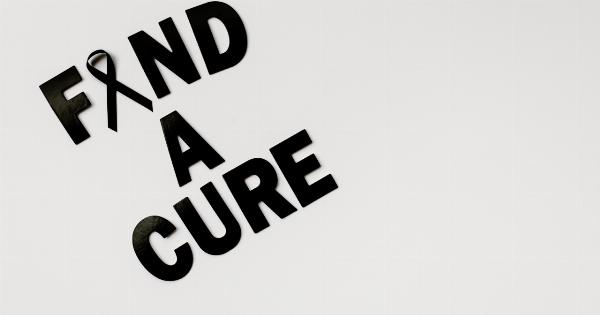Difficulty swallowing, also known as dysphagia, is a condition that affects the ability to swallow food, liquids, saliva, or even pills.
It is not uncommon for individuals to experience occasional difficulty swallowing, especially when eating or drinking too quickly. However, if this problem persists or worsens over time, it may indicate an underlying medical condition that requires attention.
Common causes of difficulty swallowing
There are various reasons why someone might experience difficulty swallowing. Some common causes include:.
1. Gastroesophageal Reflux Disease (GERD): GERD is a condition in which stomach acid flows back into the esophagus, causing irritation and inflammation. This can lead to difficulty swallowing as the esophagus becomes narrow.
2. Esophageal Stricture: An esophageal stricture refers to a narrowing of the esophagus, which can be caused by inflammation, scar tissue, or the presence of tumors. This narrowing can result in difficulty swallowing.
3. Achalasia: Achalasia is a rare condition in which the muscles of the lower esophageal sphincter fail to relax properly, making it difficult for food and liquids to pass into the stomach.
4. Neurological Disorders: Certain neurological conditions, such as Parkinson’s disease, multiple sclerosis, or stroke, can affect the muscles involved in swallowing, leading to dysphagia.
5. Structural abnormalities: Structural problems in the throat or esophagus, such as tumors, strictures, or webs, can obstruct the passage of food and cause difficulty swallowing.
6. Muscle Weakness: Weakening of the muscles involved in swallowing can occur with age, certain medical conditions, or as a side effect of certain medications, leading to dysphagia.
When should you see a doctor?
While occasional difficulty swallowing may not indicate a serious problem, it is advisable to consult a doctor if you experience any of the following symptoms:.
1. Persistent or worsening difficulty swallowing:
If you consistently find it challenging to swallow food, liquids, or even saliva, it is essential to seek medical attention. This is especially true if the problem worsens over time, as it may indicate an underlying condition that requires treatment.
2. Painful swallowing:
If you experience pain when swallowing, it could be a sign of an infection or inflammation. This could be caused by various factors, including infections, ulcers, or esophageal spasms.
Consulting a doctor can help determine the cause and provide appropriate treatment.
3. Weight loss or malnutrition:
If you are experiencing difficulty swallowing, it might affect your ability to consume an adequate amount of food and essential nutrients.
Unintentional weight loss or malnutrition could be indicators of a more severe underlying condition that requires medical attention.
4. Regurgitation:
Regurgitation occurs when swallowed food, liquids, or stomach contents come back up into the throat or mouth. This can be a sign of a serious condition, such as GERD or achalasia, and should be evaluated by a healthcare professional.
5. Coughing or choking:
If you frequently cough or choke while eating or drinking, it may be due to difficulty swallowing. This can put you at risk of aspiration pneumonia, a lung infection caused by inhaling food, saliva, or liquids into the lungs.
Seeking medical advice is crucial to prevent complications.
6. Change in voice:
Difficulty swallowing can sometimes affect the vocal cords, leading to changes in voice quality or hoarseness. If you notice these changes, it is advisable to see a doctor to determine the cause and appropriate treatment.
7. Persistent heartburn:
Heartburn is a common symptom of GERD, which can also be associated with difficulty swallowing.
If you frequently experience heartburn along with swallowing difficulties, it is essential to consult a healthcare professional to assess the underlying cause.
8. History of esophageal issues:
If you have a known history of esophageal issues, such as esophageal cancer, Barrett’s esophagus, or esophageal stricture, it is crucial to monitor any changes in swallowing patterns.
Any new or worsening symptoms should be reported to your doctor promptly.
9. Persistent hiccups:
In some cases, difficulty swallowing can be accompanied by persistent hiccups. Although hiccups are typically harmless and temporary, if they become chronic and are accompanied by swallowing problems, it may indicate an underlying medical condition.
10. Age and risk factors:
As we age, the risk of developing swallowing difficulties increases. If you are over the age of 50 and experiencing difficulty swallowing, it is advisable to seek medical evaluation, as this might be an early sign of a more serious health condition.
Conclusion
Difficulty swallowing, or dysphagia, can significantly impact an individual’s quality of life. While occasional swallowing issues may not be cause for concern, persistent or worsening symptoms should not be ignored.
Seeking medical attention in a timely manner is crucial to diagnose and treat any underlying medical conditions that may be contributing to the swallowing difficulties.


























